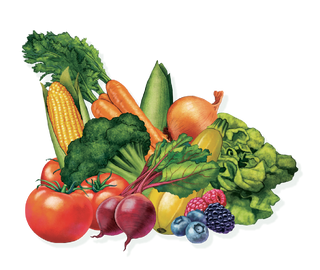Compost Q & A: Are All Leaves Equal?
When to Fill Raised Beds? Best Compost for Roses? What About Grass Clippings?
Q: I'm brand new to composting and wondering if the leaves of all tree species are equally effective and safe for turning into garden gold. Most of our leaves are from poplar trees but we also have oak, maple, sweet gum, hickory, black walnut and (God help us) mimosa. Are there any leaves I should avoid putting in the compost bin?
- ---Larry; "on 11 acres of East Tennessee woods in the foothills of the Smoky Mountains"
A: Not really. The only really problematic leaves are black walnut, which contain juglone, a naturally occurring compound that can inhibit the growth of—or just plain kill—certain plants, even after composting. (see this article for lots more black walnut info) And experts assure me that even they are fine to include if they only make up a small percentage of the pile. The most important thing with leaves is the shredding. Whole leaves mat down and take forever to compost. But leaves that are mowed or that go through a shredder or leaf blower set on reverse become compost quickly.
Q: I've been 'flat earth' gardening, but am ready to take the plunge into raised beds. I've listened for a while and think I understand how to construct the beds, the proper dimensions, etc., and intend to use a 50/50 mix of soil and compost to fill them. I'd like to make a few this fall so they'll be ready when the growing season starts. But will the compost still have its nutrients next spring? Or will they wash out with rain, snow melt, etc.?
- ----Mike in Green Bay
A: Fall is an excellent time to construct raised beds. Just remember to make them no wider than four feet so you can always reach the centers without stepping on that light loose soil. (see this article for lots more raised bed info) And yes, I would fill them right away, so that they really ARE ready to go first thing next season.
Now if this question had come from a warmer climate, I'd suggest equipping the beds with little garden-sized hoop houses or, at the very least, row covers and using the nutrients in that compost right away to grow salad greens and such this winter. But in Wisconsin, your best bet is to just cover the finished beds with two inches of shredded leaves to keep as many of the nutrients intact as possible--and to prevent weeds from moving in. When Spring arrives, pull the mulch off to the sides for a week to allow the direct rays of the sun to warm up the soil, plant, and then replace the mulch to prevent weeds.
Q. We had a long email exchange with Pamela in Penn Valley, PA who began by telling us that her Knockout roses really suffered this year. We explained that recent reports seem to indicate that Knockouts have been infected with a rose virus at unusually high rates, and that it's always better to plant a diversity of types of types and varieties, whether the crop is tomatoes or roses. Pam then revealed that she was using wood mulch, which we explained (for the six jillionth time!) weakens roses and makes them much more prone to disease—and pests. She promised to switch to using compost for mulch (compost prevents the diseases that wood and bark mulches foster), and wrote: "One more question – is any particular type of compost best to use?"
A: It's a great question. First, we're talking about "yard waste compost", made mostly from shredded fall leaves. We are NOT talking about composted manure¬; or any compost that looks, feels or smells 'off' in any way, which you can easily determine with 'the duck test'. It if looks like dark, rich soil, smells like dark, rich soil and feels like dark rich soil, it must be a duck—eh, I mean good compost. ("Hey lady—you wanna buy a duck?")
Q: In the past, I have mostly bagged and composted my grass clippings—especially in the fall, as I get boatloads of leaves and need to 'fortify' them with "greens". But I heeded your lawn care advice and now mulch all my clippings into the lawn instead. It seems to have helped my lawn, but last year's leaves have still not completely composted as a result. What should I do? And which method is more earth friendly—collecting the clippings or leaving them behind?
- ---Stephen in Oklahoma City
A: Grass clippings should always be mulched back into the lawn, period. They're 10% Nitrogen by weight, which makes them a perfect year-round supplemental feeding for turf. Lawns look sensational with two gentle, natural feedings at the correct time of year (Spring and Fall for cool season lawns; early and mid-summer for warm season grasses) augmented by the nice little snacks those clippings regularly provide.
Use a dedicated mulching mower (or at the very least, a super-sharp blade) and your mulched clippings will also increase biodiversity at the soil line, which helps to prevent and/or eliminate thatch. And if you are foolish enough to use chemical herbicides on your lawn, you must return them TO the lawn. Compost made with those clippings could kill any plant that isn't a lawn grass.
Now, to make leaves compost faster, be sure to shred them well. And if you want and/or need to further accelerate the process, mix in some spent coffee grounds—they're a much more powerful "wet green" than grass clippings; and using them doesn't starve your lawn. You could also use horse manure; or poultry manure from birds that aren't medicated or confined.
(Note: When I wrote that last line, my show's producer said, "I can understand the 'medicated' part, and I would never personally buy anything chicken-related that wasn't 'free range', but I'm curious as to why you wouldn't use their manure in compost if the chickens haven't been fed antibiotics or growth hormones…?"
My response: One night at a medical conference dinner I had the privilege to attend, someone asked the natural physician Andy Weil, "what's the worst food you can eat?" He quickly said "anything cooked by an unhappy person." I feel the same way about chickens. I only want happy poop in my piles!)

